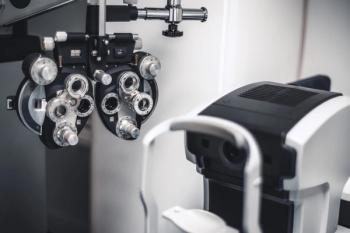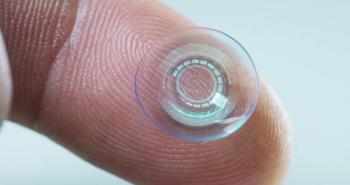
Efficacy of novel eye drop to reverse cataracts found in Phase 1/2 study
The primary endpoint of the 4-month study was the proportion of patients with clinically significant improvements in the contrast sensitivity.
Randall Olson, MD, corresponding author of the study, Moran Eye Center CEO and Distinguished Professor and Chair of the Department of Ophthalmology and Visual Sciences at the University of Utah, Salt Lake City, and colleagues reported that a novel eye drop (C-KAD, Livionex Inc.) has been formulated to treat early to moderate age-related cataracts. The drop improves vision by breaking up degraded protein complexes that cause lens clouding, which leads to cataracts and vision loss, when instilled in the eye.
They reported the results of their subgroup analysis in the American Journal of Ophthalmology.1
In a company press release, Olson said, “This therapy marks a crucial milestone in the field of ophthalmology. Currently, there are no FDA approved pharmacological therapies for age-related cataract. Cataract surgery remains the only safe and effective treatment option available.”
Subgroup analysis
A randomised, double-blinded, placebo-controlled, multicenter Phase 1/2 clinical trial was conducted at six sites in the US and included 111 patients. A sub-analysis evaluated the efficacy of a topical 2.6% edetate disodium (EDTA) ophthalmic solution to improve vision in a subgroup of patients with decreased contrast sensitivity, the authors explained.
Subsequently, 41 eyes with reduced contrast sensitivity were included in the subgroup analysis; 21 patients received active treatment and 20 received placebo. The primary endpoint of the 4-month study was the proportion of patients with clinically significant improvements in the contrast sensitivity.
The authors reported that C-KAD met the primary endpoint in 66.7% of eyes in contrast to 35% of eyes in the placebo group after 4 months. No serious adverse events were reported.
The authors also reported positive trends in the best-corrected visual acuity and improved lens transparency.
The investigators concluded, “A significant treatment effect of C-KAD in visual function and vision quality was observed consistently. These promising results suggest a novel, non-invasive pharmacological treatment to improve vision in patients with early-stage cataract.
They also believe that larger prospective clinical studies are warranted to confirm the results.
Reference:
Kuboi T, Chuck RS, Pineda R II, et al. Subgroup analysis from a phase1/2 randomized clinicaltrial of 2.6% EDTA ophthalmic solution in patients with age-related cataract. Am J Ophthalmol. 2024; available online Aug 2.
https://doi.org/10.1016/j.ajo.2024.07.038
Newsletter
Want more insights like this? Subscribe to Optometry Times and get clinical pearls and practice tips delivered straight to your inbox.















































